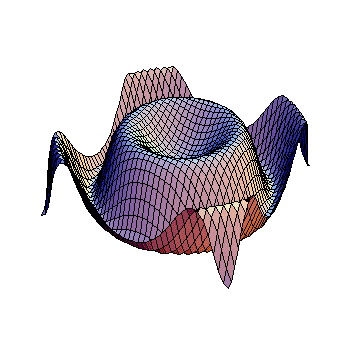First, use the identity:
#cos2x = cos^2x-sin^2x =color(red)(2cos^2x-1)#
Now we can substitute and solve this like a quadratic equation:
#cos2x + 3cosx = 1#
#color(red)(2cos^2x)+3cosx color(white)"-"color(red)(-1) = 1#
#2cos^2x + 3cosx-2=0#
#(2cosx-1)(cosx+2) = 0#
#cosx = 1/2# or #cosx=-2#
Since #cosx# cannot ever be #-2#, the only solutions are when #cosx = 1/2#.
Therefore, x could be #cos^-1(1/2) = pi/3#, or x could be #-pi/3# since cosine is an even function and therefore #cos(pi/3) = cos(-pi/3)#
Finally, #x# could also be #-pi/3# or #pi/3# plus any multiple of #2pi#, since adding #2pi# to an angle makes it go all the way around the circle and basically become the same angle again. So, our final answer is:
#{x | x=-pi/3+2kpi, x=pi/3+2kpi}# for any integer #k#.


